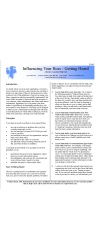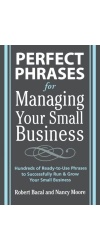Constructive disagreement hints and tips
Learn to disagree and argue constructively!
If you’re fond of a good debate, you know how to annihilate someone else’s position in an argument while still somehow managing to keep a friendly rapport with that person. This tactic is frequently used by politicians and lawyers, and one that will no doubt come in handy in online networking. Networking is for discussion, and discussion leads to disagreements. You must learn how to argue properly if you ever expect to survive in a volatile networking world!
Do you know how to “argue in context?”
It’s a tricky skill indeed and requires:
1. a thick skin, and
2. the ability to smooth people over with words and small kindnesses whenever possible.
Is this sleazy? It depends on your personal depth of genuine kindness, which I surely cannot judge. Whether you’re shallow and transparent or virtuous and kind, either way it helps to know how to argue without ruffling feathers and stepping on fragile egos.
As you meet and network with various personalities on the internet and in your real life business dealings, you will find yourself debating with people a good amount of the time. Because of the fact that so many small business owners nowadays are, 1. women, and 2. creative types, this style of debate is not always well-received in some circles.
If you express yourself a little too vehemently, you’ll get resistance from the other side, wounded egos, virtual pouting, spiteful retaliations, cold, stony silences and whatever other passive-aggressive defense mechanisms are in fashion.
The reason for this is the emotional and subjective nature of your audience.
One who takes a subjective viewpoint regards a situation from within themselves and reacts in an emotional way.
One who takes an objective viewpoint regards a situation from a logical and unbiased perspective, outside of the realm of their own emotions.
If two people come together in a discussion and one of the parties is viewing the situation subjectively while the other is viewing the situation objectively, those two people are going to clash wills like nothing you’ve ever seen.
If two people who are both viewing a situation from a subjective standpoint, that’s also going to cause some serious combustion.
Therefore, the best way to approach an argument is to literally step outside of your own mind and start thinking on a logical and rational level. If your opinions become clouded with emotional reactions, back off, “disengage”, and take another, clearer view from the objective perspective. If you truly can’t do this, you’re not cut out for the debate team but hey, we’re all just people here so forgive yourself and move on with your life.
Arguing in context is a great way to keep your networking tiffs, disagreements, debates and squabbles from hurting your relationships.
In order to properly “argue in context,” embrace the following personal mantras to bring you confidence, self-assurance and deftness in the handling of tender egos:
1. I respect the person with whom I’m debating.
Even though we disagree at the moment, I still value their opinion and admire them for their strengths and accomplishments.
2. The person with whom I’m debating respects me.
Even though we disagree at the moment, they still value my opinion and admire me for my strengths and accomplishments.
3. This person is disagreeing with what I say right now because they think I am mature enough to handle a unique viewpoint other than my own.
Unreasonable people cannot handle adversity, but you accept it gracefully. Don’t view arguing as a personal attack, but a chance to expand your own consciousness with someone who views you as an intelligent counter-perspective.
4. I would rather be told the truth and disagreed with, than told a lie to smooth over my own ego.
Someone with a solid, strong character can handle the truth. If people are deceiving you, they may question the thickness of your skin. Hold your head up high and be accepting of others. In turn, they’ll be honest with you. That’s what you want, isn’t it?
5. If I think that I have inadvertently hurt this person’s feelings in argument, I will not cower in shame but will right the situation.
If you have any sense of being on shaky ground after engaging in an intellectual battle with someone, patch that rift with kind words, support and willingness to listen. You may have to retreat for a while until things cool down, but you must let the other person know that you still respect and admire them.
6. The argument that I’m currently involved in now will not “spill over” to other situations I may encounter with this person.
If you can keep your ego in check, you can have the “You say black, I say white” conversation one minute, and then you can shrug it off and go out together for a burger.
Next time someone is trying to tear down a point that you feel strongly about, remember to argue in context. It will keep you from becoming angry and defensive, and help you maintain smooth and friendly relations with this person. And that’s good practice for all of your networking experiences!
Copyright 2005 Dina Giolitto. All rights reserved.
Need a ghostwriter or web content master? Add polish and style to your web articles, e-books and marketing manuals… with dynamic and compelling copy that will rivet your readers, dramatically increase your credibility and position you at the forefront of your industry. Visit http://wordfeeder.com for more information.






